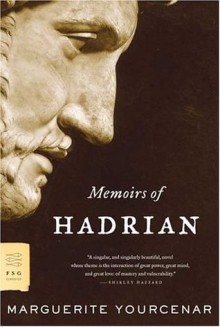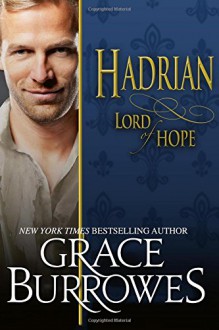
My reaction to [b:Memoirs of Hadrian|12172|Memoirs of Hadrian|Marguerite Yourcenar|https://d.gr-assets.com/books/1416448158s/12172.jpg|1064574] astonished and amused me: I'm not used to reacting to novels the way people react to [b:The Secret|52529|The Secret (The Secret, #1)|Rhonda Byrne|https://d.gr-assets.com/books/1391995828s/52529.jpg|2001660] - with a deep conviction that this book could give me strength and shield me from depression; a need to underline three passages per page, to buy copies for my honours students, to recommend it to past students and my friends; finally - a desire to own a copy, which vanished the moment I read the final sentence.
Perhaps more interesting is the fact that I found this novel difficult to discuss other than in terms of my reaction to it; I found it dissolved my criticism. Moreover, I was simply embarrassed at my reaction, and had a crawling suspicion that something is wrong with this book; that my reaction cannot be attributed to anything else but kitschiness of sorts; that this novels tricks me, on some level.
I mentioned to that to an elderly and extremely well-read friend of mine, who listened patiently to my infatuated-but-mistrustful story, and said:
- It's the French way. They tend to articulate every last bit of their thoughts in a very polished way. We tend to look for the missing two-thirds of an iceberg, and in French books, there's frequently nothing left under the surface - they deliver their message fully and openly. You said it felt like a manifesto, and to me, French literature frequently has this manifesto-like feel.
To conclude: it is a beautiful, didactic and uplifting novel, written soon after the dramatic events of World War II; it can make you feel like a better person - or, if you're anti-establishment, anti-interventionalism, it can make you irritated. My inner
Ventrue loved it.


 Log in with Facebook
Log in with Facebook 









